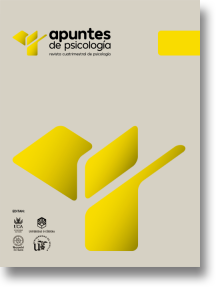Importance of the extralinguistic context in the production of egocentric speech in preschoolers
DOI:
https://doi.org/10.55414/a55jd927Keywords:
egocentric speech, social speech, extralinguistic context, self-regulation, task contentAbstract
In this research the role of extralinguistic contextin the production of egocentric speech in preschool children was studied. We expected to find: (1) fewer emissions of speech with an unshared extralinguistic context; (2) if total speech was shared out between the social and the egocentric function, we expected to find less social speech when the extralinguistic context was unshared, with an increase in the proportion of emissions of egocentric speech. Eighteen children aged 51 to 62 months were administered a classification task under two experimental conditions: (1) shared extralinguistic context (same task situation) and (2) unshared extralinguistic context (different task situation). The results obtained after the application were more complex than expected and followed Vygotski's reasoning theory concerning origin and function of egocentric speech.
Downloads
References
.
Downloads
Published
Issue
Section
License
Copyright (c) 2022 APUNTES DE PSICOLOGÍA

This work is licensed under a Creative Commons Attribution-NonCommercial-NoDerivatives 4.0 International License.


















